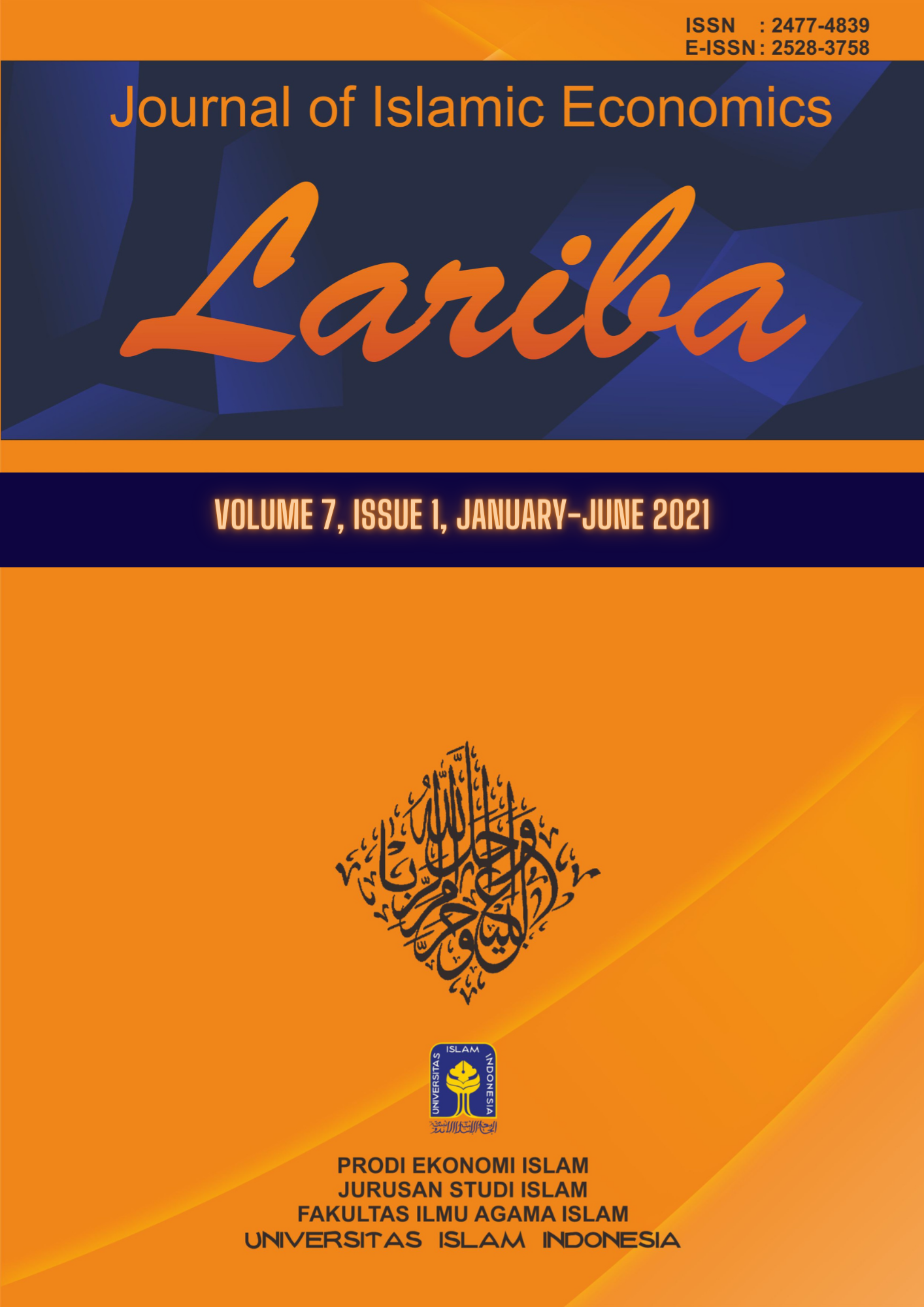Main Article Content
Abstract
The Covid-19 disaster is an exogenously induced downturn that is expected to leave 2021 global GDP approximately 5 percentage points lower than in January 2020 pre-Covid-19 estimates. The negative impact on low-income households is especially severe, jeopardizing the world's significant progress in reducing extreme poverty since the 1990s. To react to frequent crises and catastrophe global economic stagnation, a new paradigm is required. Institutionalized risk-sharing can assist the global economy in resiliently absorbing shocks and stimulating stagnant demand. Islamic finance principles assist the economy in avoiding endogenously generated crises, such as the Global Financial Crisis, and provide a strong safety net against exogenously induced cycles, such as the Covid-19 crisis. In practice, this necessitates a diverse set of well-functioning institutions to translate these principles into real-world impact. As it currently stands, the Islamic financial industry’s many essential components of this spectrum are still missing. The crisis should be viewed as an opportunity to fill gaps and diversify the industry. Given the fact that the Covid-19 crisis is exogenously induced, the impact on Islamic banks is expected to be comparable to that on conventional banks. The similarity of their business model, sharia-compliant equities, on the other hand, outperformed their conventional counterparts. The ineffectiveness of non-profit organizations, like awqaf and zakat, reduced the role of the safety net in curbing the repercussions of the crisis. The Covid-19 pandemic poses liquidity, resilience, and capital challenges for the Islamic banking sector.
Article Details
License
Authors who publish with this journal agree to the following terms:
- Authors retain copyright and grant the journal right of first publication with the work simultaneously licensed under a Creative Commons Attribution License that allows others to share the work with an acknowledgement of the work's authorship and initial publication in this journal.
- Authors are able to enter into separate, additional contractual arrangements for the non-exclusive distribution of the journal's published version of the work (e.g., post it to an institutional repository or publish it in a book), with an acknowledgement of its initial publication in this journal.
- Authors are permitted and encouraged to post their work online (e.g., in institutional repositories or on their website) prior to and during the submission process, as it can lead to productive exchanges, as well as earlier and greater citation of published work (See The Effect of Open Access).
How to Cite
Ashraf, M. A. (2021). Overcoming the Economic Crisis due to a Pandemic through Islamic Finance. Journal of Islamic Economics Lariba, 7(1), 77–91. https://doi.org/10.20885/jielariba.vol7.iss1.art7




